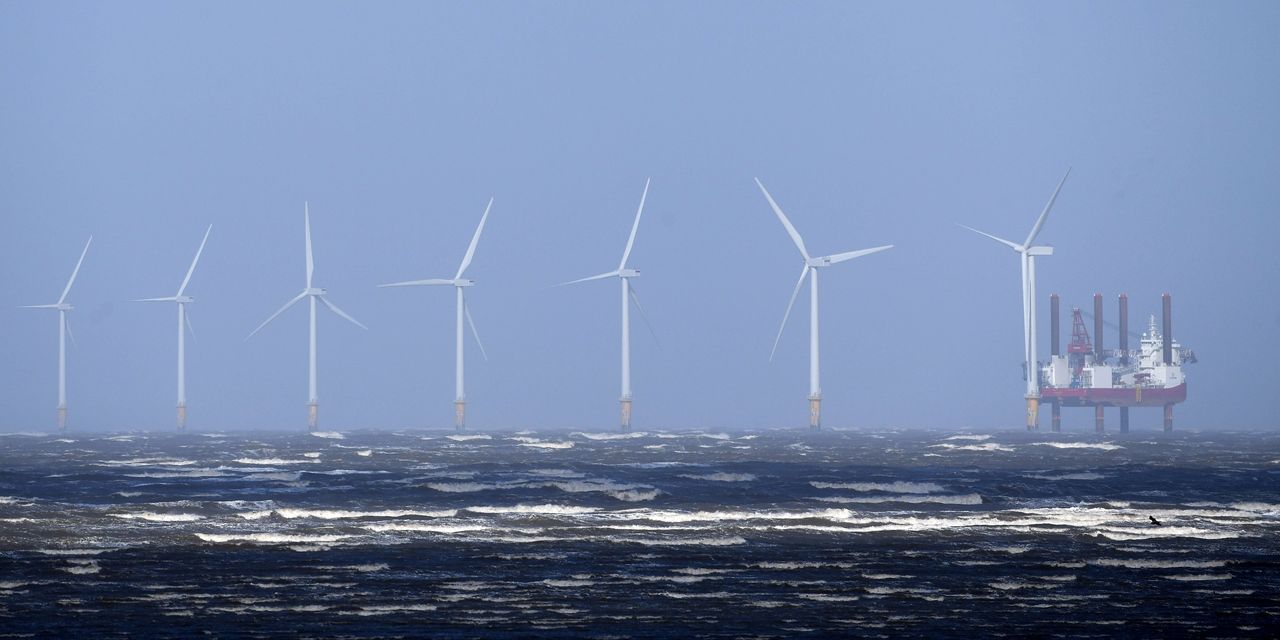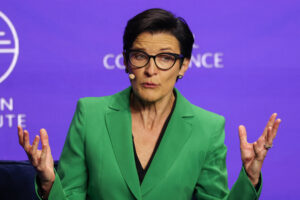
The world must stop investing in new oil and gas wells in order to hit ambitious climate goals by 2050.
That’s a more aggressive stance, expressed in a report out Tuesday, from influential watchdog the International Energy Agency.
According to the IEA, there is a narrow but viable pathway for redesigning a global energy sector that produces net zero greenhouse gas emissions by 2050 — the mid-century target adopted by the U.S., the European Union and select others.
China, the world’s largest polluter and one that has continued to expand coal use, has tagged 2060 as its goal for net zero. India, the next largest emitter behind China and the U.S., has yet to formalize a net-zero target. Such goals rely on capturing carbon and other emissions from traditional energy use.
The IEA report sets out no less than 400 steps needed to transform how energy is produced, transported and used. But the report’s boldest statement is its call for no investment in new fossil fuel supply projects, including coal.
Some of the world’s biggest oil companies, including BP PLC BP, +1.51%, Royal Dutch Shell PLC RDS.B, +1.49% RDS.A, +1.46% and Total SA TOT, -0.04% have signaled their intention to reduce their dependence on fossil fuels and invest more in lower-carbon energy, although the staunchest environmental watchers say Big Oil is not moving fast enough. U.S. energy concerns, including Exxon Mobil XOM, +2.34% and Chevron CVX, +1.24% have upped their rhetoric around slowing climate change but have generally been seen as lagging their European and other counterparts.
By most accounts, the IEA’s updated road map goes beyond what any of the fossil-fuel companies have pledged so far, with many still dependent on income from oil CL00, -0.18% and natural gas NG00, -1.25% to fund their cleaner-energy transition plans. Most countries have also stopped short of calling for an outright end to fresh fossil-fuel projects. In the U.S., most Republican-led climate-change initiatives push for keeping natural gas and nuclear, as well as carbon capture, in the nation’s energy mix.
Dave Jones, analyst at the energy think tank Ember, told the Associated Press the IEA report’s recommendation mark a turnaround from agency’s past position and were “truly a knife into the fossil fuel industry.”
The IEA said the power sector needs to lead the way, with electricity generation achieving net zero by 2035 in the major economies and globally five years later.
The IEA said last month that 2021 will see the second-largest annual increase in emissions since 2010 as the world economy bounces back from the pandemic.
“There is a growing gap between the rhetoric we hear from governments and industry leaders, and what it happening in real life,” IEA executive director Fatih Birol said.
“Beyond projects already committed as of 2021, there are no new oil and gas fields approved for development in our pathway, and no new coal mines or mine extensions are required,” the IEA said.
Net zero emissions across all parts of the economy are considered essential to meet the Paris climate accord’s goal of keeping global warming below 1.5 degrees Celsius (2.7 Fahrenheit) by the end of the century compared with pre-industrial times. The world has already warmed by 1.2 C since the late 19th century, scientists say.
The IEA also called for a four-fold increase in the deployment of solar and wind power by 2030 compared to last year’s record level.
The IEA said that if global oil and gas supply shrinks in line with its plan, the Organization of the Petroleum Exporting Countries, the cartel that currently controls more than a third of global supply, would by 2050 control more than half of the world’s oil supply.
The Paris-based IEA includes 30 members mostly from North America, Europe and East Asia. The agency and OPEC coordinate on some programs and market data projections but operate independently, which means OPEC would not be held to the roadmap in Tuesday’s report.
The report said that while technologies exist to decarbonize the energy sector, they aren’t yet available for aviation or heavy industry. Scalable ways of capturing carbon dioxide from the atmosphere are needed, the report said.
Environmental groups have in the past criticized proposals that rely on unproven technology, arguing instead that making sharper cuts in actual emissions is a more effective approach.
The IEA pushed for an end to the sale of new internal combustion engine passenger cars by 2035 (a target already announced by some auto makers).
U.S. President Joe Biden was set to discuss electric vehicles at a Ford MotorF plant on Tuesday. Biden has proposed $174 billion for electric vehicles as part of $2.3 trillion infrastructure package.










